7 Questions with Kathryn Vercillo: on lived experience with depression and what “recovery” might mean
... and the role getting a Masters in Psychological Counseling played into all of this
This interview was originally published here on Substack at Policing Mental Health as part of my virtual book tour for The Artist’s Mind.
1. You write a lot about how art interacts with mental health. What's been your findings?
Ah, that’s a big question! Mostly because it starts with trying to define what we mean by art and what we mean by mental health. Ultimately, I believe that all of us are creative people who have mental health experiences, so it’s very broad for me. And my goal is to explore all facets of this through my body of work, which I feel like I’ve just begun to do even though I’ve been doing some variation on this work for well over a decade.
It’s also a big question because the answer is that it’s different for everyone. But, in general, to keep it succinct, here’s what I have found:
Art is therapeutic/ cathartic for people in all different types of situations and has been so across time and culture. This can be as complex as using art therapy techniques to address trauma in a clinical setting or as simple as meditative coloring or listening to a song that improves your mood.
However, creating art can sometimes exacerbate mental health symptoms for some people. Someone with OCD, for example, might engage in compulsive behavior through their art-making. Someone with performance anxiety might find that the experience of creating art in a public setting is too triggering for them. Someone with trauma might experience flashbacks or symptoms while creating artwork. This is neither bad nor good; it’s something to be aware of.
Conversely, mental health symptoms can impact a person’s art/creativity in myriad ways. For example, in a recent interview with me, psychiatrist Martin Greenwald, M.D. noted, “Most of my patients who are artists or have artistic inclinations find their efforts at creation hampered or totally destroyed by psychological difficulties or outright mental illness. I’ve had a number of psychotherapy patients who were artists or academics whose output has ground to a halt because of depression, crippling anxiety, or other problems that don’t fit neatly into our diagnostic categories.” Sometimes it’s not as negative as that. Sometimes it’s not negative at all; it’s just that your content or medium might change as a result of needs related to mental health symptoms. This is the part I’m really exploring in depth these days.
2. How about other forms of art besides the visual - for example, music or sculpture? Can these have a positive impact on mental health?
I believe that any art form … and really any hobby or interest … has the potential to have a positive impact on mental health. I came to the study of this work because I was mired in deep depression and crochet was one of the things that helped me through that. I wrote about that in my book Crochet Saved My Life
I’ve become something of an expert in the health benefits of crafting as a result. Just a handful of benefits include:
Focused, soothing repetition of creating stitches with your hands helps stop rumination of the mind and create a sense of peace and calm
Along those lines, it’s possible to use crochet and other crafts to practice mindfulness in order to reduce stress, anxiety, etc.
There is likely some kind of relationship to crafting with the hands, particularly using repetitive motions, and the positive release of serotonin and/or dopamine which boosts mood
Oftentimes in depression or chronic illness, you feel like you have nothing to offer the world, so being able to create something functional or beautiful with your own two hands helps boost self-esteem
Creativity can provide a safe space for learning lessons that then apply to other parts of your life; I shared recently in a podcast interview about how crochet taught me gentleness with myself
While my deep research was in crochet (and by extension a bit into knitting and other yarncrafting), I know that it’s true of other arts and crafts as well. My dad lived with depression most of his life and woodworking was his job/passion and a key thing that helped him through his symptoms. I definitely know people for whom music offers that.
Moreover, I would argue that it’s not just creating art that can help with improving mental health but also intentionally consuming art … meaning listening to music mindfully, spending a half an hour browsing through an art book or even a fashion magazine, taking the time to really stop and immerse yourself in a film rather than multi-tasking a TV binge with phone scrolling, etc. I think that even when we have no energy or motivation to create ourselves, we can use art as a tool for improving mental health.
3. How old were you when you first suffered depression? What was going on in your life at that point?
I live with recurring depression which has been double depression at least twice in my life and possibly, I think, three times. So what that means is that I experience major depression (symptoms that last most of the day most days for two weeks or more) on a recurring basis - once every year or two. And I have experienced persistent depression (symptoms lasting most of the time for two years or more) two or three times. I was first diagnosed with that double depression in my late twenties in what I then considered my first bout of depression … but now that I look back, I think I experienced my first lengthy period of double depression in my teens. It’s just hard to say because teenage years are hard anyway and there was a lot going on and it’s kind of a fuzzy line. But let’s put it this way … I don’t remember a time ever in my life that I didn’t experience some kind of depression.
The idea that depression is a chemical imbalance has been mostly debunked these days but I continue to think that there’s something to it because when I adjust my meds, my symptoms improve dramatically. When I try other things (I feel like I’ve tried ALL the things) without that, I usually get only incrementally better or don’t get better at all. So, for me personally, I think depression is a lifelong thing that likely has a genetic component. There’s a history of depression and suicide in my family.
Of course, we are made up of both “nature” and “nurture” and I think the things that have happened in my life can worsen the depression or make me at greater risk of a bout of it. Childhood trauma played a role. Various stressors in life have played a role. At the time that I was first diagnosed in my twenties, I was going through a really hard break-up, I wasn’t working and was financially stressed, I felt really lost as to my purpose in the world … I’m not sure what the chicken and the egg there is but I healed through a combination of medication and therapy plus shoring up my support system, utilizing creativity as a healing tool, and practicing yoga.
4. They say knowledge is power. Did your Masters in Psychology aid your recovery?
Recovery is a funny word. I do believe that you can recover from mental health issues. Sarah Fay’s writing about this is really informative. But I really think for me this is probably a lifelong thing. I can change my framework around it, I can change my approaches to it, and it’s definitely gotten easier to see it as just part of my own ebbs and flows of life as I’ve aged. But I don’t know if I’d say I’m “recovered” even though I’m “better.”
To address the underlying question here, though, yes my Masters in Psychological Studies was immensely helpful to me on a deeply personal level. I went into it thinking that I might want to work as a therapist. I quickly realized that I didn’t want to, not in a traditional sense anyway, but that what I was learning was so valuable for me that it was worth continuing the degree.
My program was in Integral Psychology, meaning it blends both Eastern and Western psychology, and it was a small cohort program of just fourteen of us. It was super intensive - we only met in person once a month but it was from 9-8 on Friday, 9-8 on Saturday and 9-4 on Sunday. The academics came naturally to me but the emotional exhaustion, combined with being so raw and vulnerable with these same people for two years, was the hardest thing I’ve ever done. Coming through to the other side, learning about myself through those relationships, all of the stuff that went along with that really helped me see my own strengths and resilience, to increase gentleness with myself, all of which have helped me in my own healing process.
And yes, sometimes the actual content of the classes was also helpful. The most helpful was my trauma class, which focused a lot on the basics of calming your nervous system through grounding, resourcing, centering … I am a very intellectual head-based person, and you can’t really reason through trauma that’s been lodged in your body for years - so somatic experiencing, healing through art and movement, all of those things were really helpful to me. I learned about hypo/hyperarousal and our window of tolerance, things that allowed me to better see when I’m just not in a place to function well and what I need to do in order to get back into that place.
5. What has aided you most in your recovery?
Time, the wisdom of experience, and learning to practice gentleness with myself and give myself some grace.
When I didn’t understand myself/ my depression so well (teens, twenties, early thirties), I was really hard on myself about how unproductive I was, what a bad friend I was, all these things … and now I understand that I’m an amazing human but only a human and what’s real for me is that sometimes I will need to sleep a lot for weeks on end and rest and focus on myself … and that I’ll also emerge from that, that I have ups and downs and that I have the skills and tools to recover from the downs, and that in the big picture of things, I’m probably going to be okay.
6. Do you think there's a link between creativity and vulnerability toward mental illness?
I honestly think that we might not have the right framework or words to explain the relationship between creativity and mental health. I’m not sure if we even have words for understanding mental health/illness in a way that’s useful to most of us right now. After all, if millions and millions of people experience debilitating depression/anxiety, is that really an individual issue or do we need a different framework for understanding this human experience? I’m not sure.
The best framework I’ve come up with for understanding it myself is that we all live on a spectrum of creativity (some people see themselves as super creative and can’t live without making art, other people don’t perceive themselves as creative at all, most of us are in the middle somewhere) and we all live on a spectrum of mental health (severely mentally ill, rarely affected by mental health challenges, somewhere in the middle.) And I think that those spectrums overlap in really interesting ways. Does being on the more creative end of that spectrum make you also more likely to be further along the “illness” side of mental health? I’m not sure. There’s research to suggest yes but it’s inconclusive.
I think it’s a great question for us to all keep exploring.
7. If you could give one piece of advice to someone reading this who is struggling with depression, what would you say?
You are not broken. You are doing the best that you can right now and that’s enough. This is really hard stuff. Be gentle with yourself. Do kind things for yourself. Give yourself grace. Get help … which might mean a doctor or therapist or nutritionist or spiritual counselor … it means different things to different people and you might need to try a lot of things to feel better and that can be super overwhelming but eventually better really does come. You are worthy and wanted here.
Kathryn Vercillo is an author, artist, and researcher who explores the complex relationship between creativity and mental health. Through interviews, investigations into art history and the history of psychology, and her own lived experience, she looks at how art is therapeutic / cathartic, how it might also be harmful to mental health, and how mental health symptoms impact creativity. Her goal is to start a greater conversation around this topic in order to assist more artists in finding what creative, financial, and holistic wellness means for them. You can support her work and follow all of her latest research by subscribing to Create Me Free on Substack.
You Might Also Want to Read:
Linked in this article for further exploration ….











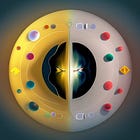
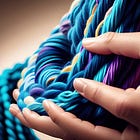
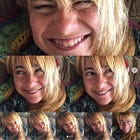
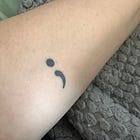
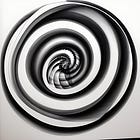
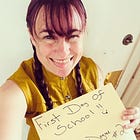
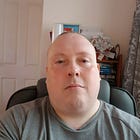
Wow, so rich and deep. There's a lot to discover here and I found it fascinating and thought provoking. Thank you!
You are worthy and wanted here. I just typed that very sentence to a loved one yesterday! She was feeling broken- being broken down with her life, due to it Not happening the way she intended it to Happen. Great story, powerful insight you have written here. Thank you. Everyone needs to read this.